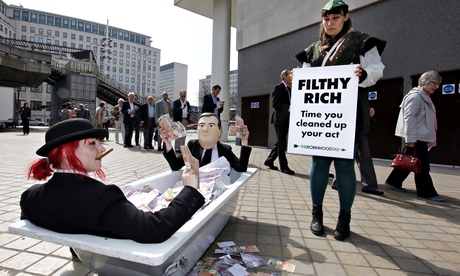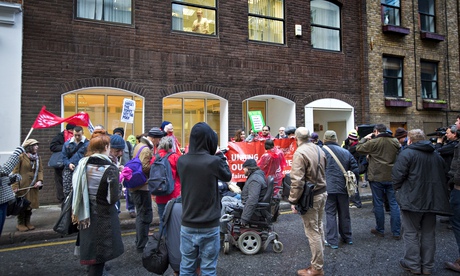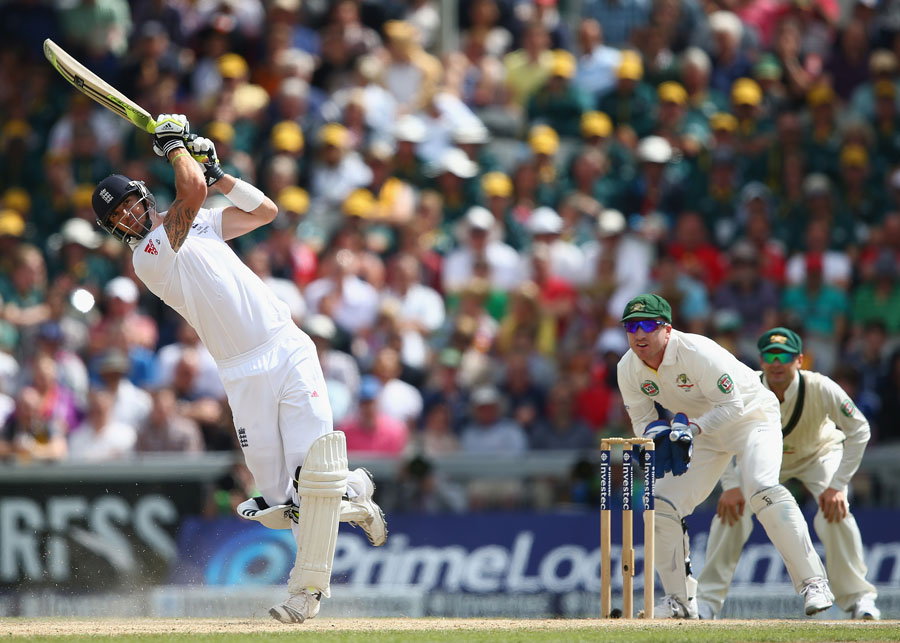Brahma Chellaney in The Hindu
If Libya, Syria and Iraq are coming undone and Ukraine has been gravely destabilised, it is the result of interventions by big powers that claim to be international law enforcers when, in reality, they are lawbreakers
Big powers over the years have targeted specific regimes by arming rebel groups with lethal weapons, thereby destabilising some states and contributing to the rise of dangerous extremists and terrorists. The destabilisation of Ukraine, Syria, Iraq and Libya, among other states, is a result of such continuing geopolitical games.
It is the local people who get killed, maimed and uprooted by the interventions of major powers and their regional proxies. Yet those who play such games assume a moral posture to rationalise their interventionist policies and evade responsibility for the consequences of their actions. Indeed, they paint their interference in the affairs of other sovereign states as aimed at fighting the “bad” guys.
Cold War echo
Take the blame game over the downing of Flight MH 17, which was shot down by a surface-to-air missile (SAM), allegedly fired by eastern Ukraine’s Russian-speaking separatists, a number of whom have clearly been trained and armed by Russia. Russia’s aid to the separatists and Washington’s security assistance to the government in Kiev, including providing vital intelligence and sending American military advisers to Ukraine, is redolent of the pattern that prevailed during the Cold War, when the two opposing blocs waged proxy battles in countries elsewhere.
Take the blame game over the downing of Flight MH 17, which was shot down by a surface-to-air missile (SAM), allegedly fired by eastern Ukraine’s Russian-speaking separatists, a number of whom have clearly been trained and armed by Russia. Russia’s aid to the separatists and Washington’s security assistance to the government in Kiev, including providing vital intelligence and sending American military advisers to Ukraine, is redolent of the pattern that prevailed during the Cold War, when the two opposing blocs waged proxy battles in countries elsewhere.
Today, with the Ukrainian military shelling rebel-held cities and Russia massing heavy weapons and troops along the frontier, the crisis threatens to escalate to a direct U.S.-Russia confrontation, especially if Moscow directly intervenes in eastern Ukraine in response to the worsening humanitarian crisis there. The United Nations says the fighting in eastern Ukraine has uprooted more than 230,000 residents. Over 27,000 of them have taken sanctuary in Russia.
After the MH 17 crash, U.S. President Barack Obama was quick to hold Russia and its President, Vladimir Putin, guilty in the global court of opinion over the downing and to spotlight Russian aid to the separatists. Through sanctions and diplomacy, Mr. Obama has steadily ratcheted up pressure on Mr. Putin to stop assisting the rebels. Yet, Mr. Obama has had no compunction in gravely destabilising Syria through continuing covert aid to “moderate” militants there. The aid is being channelled through the Central Intelligence Agency (CIA) and the jihad-bankrolling oil sheikhdoms.
Regime-change strategy
Mr. Obama set out on the mission of regime change in Syria by seizing the opportunity that opened up in 2011, when popular protests broke out in some cities against President Bashar al-Assad’s autocratic rule. The detention and torture of a group of schoolchildren, who had been caught scribbling anti-government graffiti in the city of Deraa, led to protests and demands for political reforms and a series of events that rapidly triggered an armed insurrection with external assistance.
Mr. Obama set out on the mission of regime change in Syria by seizing the opportunity that opened up in 2011, when popular protests broke out in some cities against President Bashar al-Assad’s autocratic rule. The detention and torture of a group of schoolchildren, who had been caught scribbling anti-government graffiti in the city of Deraa, led to protests and demands for political reforms and a series of events that rapidly triggered an armed insurrection with external assistance.
From bases in Turkey and Jordan, the rebels — with the clandestine assistance of the U.S., Britain and France — established a Free Syrian Army, launching attacks on government forces. Washington and its allies simultaneously mounted an intense information war demonising Mr. Assad and encouraging officers and soldiers to desert the Syrian military and join the Free Syrian Army.
It is clear three years later that their regime-change strategy has backfired: Not only has it failed to oust Mr. Assad, it has turned Syria into a failed state and led to the rise of the Islamic State of Iraq and the Levant — a brutal, medieval organisation seeking to establish a caliphate across the Middle East and beyond. With radical jihadists now dominating the scene, the Free Syrian Army has become a marginal force, despite the CIA continuing to train and arm its members in Jordan.
Had Mr. Obama, British Prime Minister David Cameron and French President François Hollande not embarked on this strategy — which helped instil the spirit of jihad against the Assad regime and opened the gates to petrodollar-financed weapons to Syrian jihadists — would murderous Islamists be in control of much of northern Syria today? It was this control that served as the staging ground for the rapid advance of the Islamic State of Iraq and the Levant into Iraq. This group now is in a position to potentially use water as a weapon through its control of the upstream areas along the Euphrates and Tigris rivers in Syria and Iraq, including important dams.
By inadvertently turning Syria into another Afghanistan — and a threat to regional and international security — the interveners failed to heed the lessons from the CIA’s funnelling of arms to the Afghan mujahideen (or self-proclaimed “holy warriors” of Islam) in the 1980s. The funnelling of arms — partly financed by Saudi Arabia and some other oil sheikhdoms — was a multibillion-dollar operation against the Soviet forces in Afghanistan that gave rise to al-Qaeda and monsters like Osama bin Laden and Mullah Mohammad Omar, chief of the Taliban who remains holed up in Pakistan. It ranked as the largest covert operation in the CIA’s history.
Now, consider a different case where a regime-change strategy spearheaded by the U.S., Britain and France succeeded — Libya. The ouster of Col. Muammar Qadhafi’s government through U.S.-led aerial bombardment in 2011, however, ended up fomenting endless conflict, bloodletting and chaos in Libya.
The virtual crumbling of the Libyan state, more ominously, has had major international implications — from the cross-border leakage of shoulder-fired SAMs from the Qadhafi-built arsenal, including to Syrian jihadists, to the flow of other Libyan weapons to al-Qaeda-linked groups in the arid lands near the Sahara desert known as the Sahel region. Nigeria’s Boko Haram extremists have also tapped the Libyan arms bazaar.
The weapons that Qatar and, on a smaller scale, the United Arab Emirates shipped to Libyan rebels with U.S. approval, including machine guns, automatic rifles and ammunition, have not only destabilised Libya but also undermined security in Mali, Niger and Chad. These weapons had been handed out like candy to foment the uprising against Qadhafi.
There cannot be better proof of how the toppling of Qadhafi has boomeranged than the fact that the U.S., whose ambassador was killed in a 2012 militant attack in Benghazi, the supposed capital of the Libyan “revolution,” has now shut its embassy in Tripoli, citing increasing lawlessness. The predawn evacuation of its entire embassy staff to Tunisia, with U.S. warplanes providing air cover, represented a public admission of defeat.
The plain truth is that it is easier for outside forces to topple or undermine a regime than to build stability and security in the targeted country. With neighbourhoods becoming battlefields, Iraq, Syria and Libya are coming undone. Another disintegrating state is Afghanistan, where Mr. Obama is seeking to end the longest war in American history.
Marginalisation of U.N.
Such is the United Nations’ marginalisation in international relations that it is becoming irrelevant to the raging conflicts. To make matters worse, the U.N. Security Council’s five permanent members, although tasked by the U.N. Charter to preserve international peace and security, have helped spark or fuel regional conflicts and aided the rise of insurgent groups through their interventionist and arms-transfer policies. These five powers — all nuclear-armed — account for more than 80 per cent of the world’s official exports of conventional weapons and most of the unofficial transfers. Chinese arms, for example, have proliferated to a number of guerrilla groups active in Africa and Asia, including insurgents in India’s northeast.
Such is the United Nations’ marginalisation in international relations that it is becoming irrelevant to the raging conflicts. To make matters worse, the U.N. Security Council’s five permanent members, although tasked by the U.N. Charter to preserve international peace and security, have helped spark or fuel regional conflicts and aided the rise of insurgent groups through their interventionist and arms-transfer policies. These five powers — all nuclear-armed — account for more than 80 per cent of the world’s official exports of conventional weapons and most of the unofficial transfers. Chinese arms, for example, have proliferated to a number of guerrilla groups active in Africa and Asia, including insurgents in India’s northeast.
The only mechanism to enforce international law is the Security Council. Yet, its permanent members have repeatedly demonstrated that great powers use, not respect, international law. They have a long history of ignoring international rules when these conflict with their plans. In other words, the international law enforcers are the leading lawbreakers.
Mr. Obama, in toppling Qadhafi through the use of air power, and Mr. Putin, in annexing Crimea, paradoxically cited the same moral principle that has no force in international law — “responsibility to protect.” Indeed, the transition from the 20th to the 21st centuries heralded the open flouting of international law, as represented by the bombing of Serbia, the separation of Kosovo from Serbia, and the invasions of Afghanistan and Iraq. Against this background, it is scarcely a surprise that, despite the continuing rhetoric of a rules-based international order, the world is witnessing the triumph of brute force in the 21st century.
If the Security Council is to act more responsibly, its permanent members must look honestly at what they are doing to undermine international peace and security. This can happen only if the Council’s permanent membership is enlarged and the veto power abolished to make decision-making in that body truly democratic.






